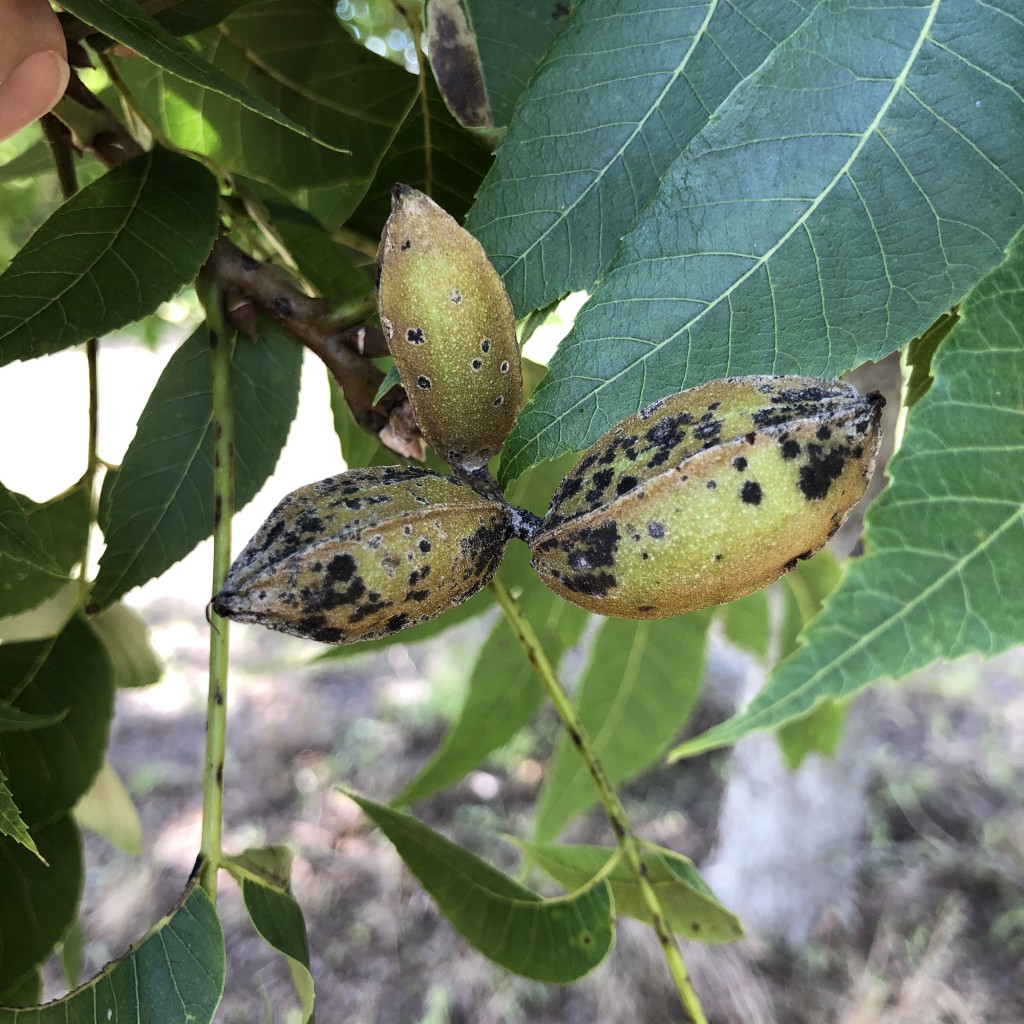By Clint Thompson
A wet summer only got wetter this week for parts of Southeast Georgia in the path of Tropical Storm Elsa. While the steady rainfall in June and so far in July has replenished the moisture in the soil, it has had a negative impact on the state’s pecan trees.

University of Georgia Cooperative Extension pecan specialist Lenny Wells discusses the significance of the increased rains and their impact on the development of pecan scab disease.
“(The rains have) been more frequent than we need for sure,” Wells said. “We’re going on two, two and a half weeks now of pretty frequent rainfall. It’s coming at a critical time when the nuts are sizing. That’s kind of when they’re most susceptible to pecan scab. Of course, rainfall drives pecan scab. It’s not a good time for us to be getting this much rain.”
Scab is a fungal disease that infects the leaves or nuts of pecan trees. If it affects the nut early enough, scab can cause the pecan to blacken and fall from the tree.
It is the wettest summer since 2013. Producers are trying to stay on top of their spray programs.
“I’d say every 10 days is what they need to be on right now. For a lot of the bigger growers, that means finishing up one spray and turning around and starting again depending on how much acreage they have to get over. It makes it tough and drives up the expense of growing them as well, which we don’t need in this current market,” Wells said.









